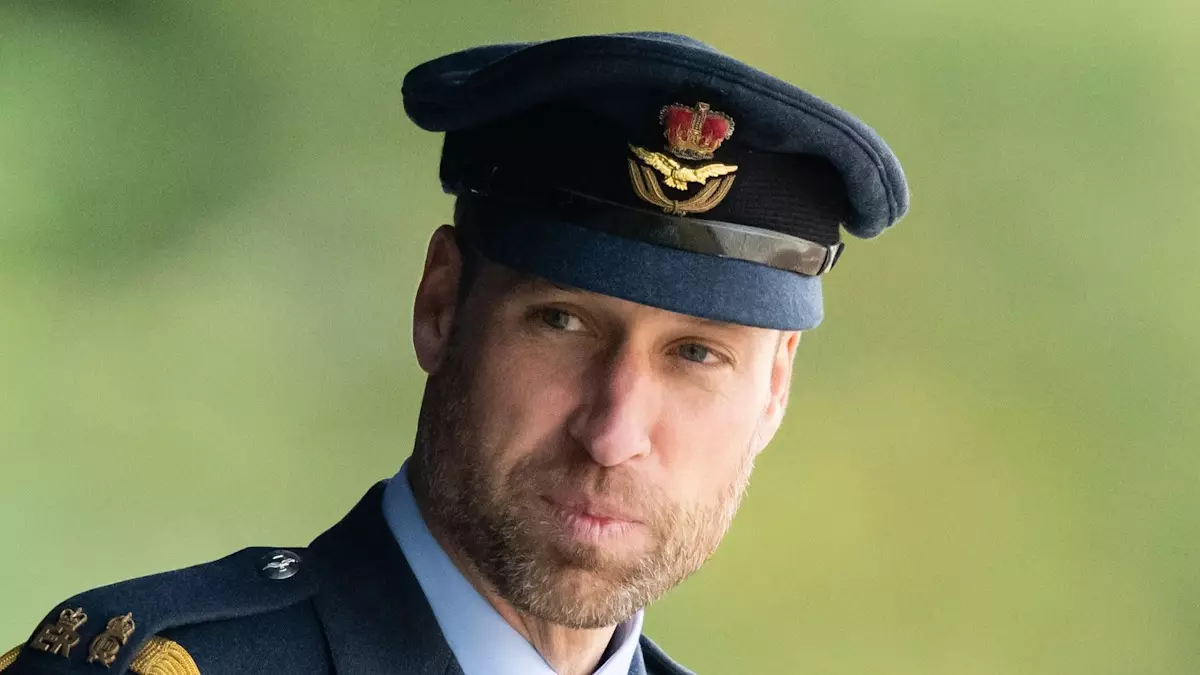In a display of personal reflection and communal mourning, Prince William, the Prince of Wales, expressed his deep connection to the world of football—a sport he has cherished since his early days. As Aston Villa prepared for a pivotal Champions League match, the royal took to social media platform X to share both his excitement and his grief. His post served as a poignant reminder of how sport can intertwine with personal history and collective memories, especially in a nation where football reigns supreme.
The timing of Prince William’s post—sharing hopes for Aston Villa’s success while mourning the loss of football legend Gary Shaw—encapsulates the way sports transcend mere entertainment and become part of family narratives. Aston Villa, a club steeped in history, holds particular significance for William; it is a team he adopted during his school years when he sought to carve out an identity distinct from the more popular teams like Manchester United or Chelsea. His choice to support Villa reflects a deeper yearning for a connection to a club with rich traditions, one that offers faithful fans the emotional rollercoaster that defines a true sports experience.
William’s recollection of the last time Villa won in a top European competition—before he was even born—highlights the passing of time and the importance of nostalgia in the sporting world. It encapsulates the longing for a revival of former glories, suggesting that sports can often serve as a mirror to personal and societal aspirations.
While sharing in the anticipation of his team’s performance, Prince William also paid heartfelt tribute to Gary Shaw—a figure revered in the Aston Villa community. Shaw’s untimely passing at the age of 63 ignited a wave of tributes, illustrating the profound impact that athletes can have beyond their playing days. As a forward for Villa between 1978 and 1988, Shaw not only showcased skill but also became part of a community’s shared identity.
Shaw’s legacy goes beyond statistics; he represents a framework of memories for fans who witnessed his contributions to the club. Prince William’s acknowledgment of Shaw in his post reinforces how sports create bonds over generations, uniting families and friends in shared experiences. The royal’s gesture of extending condolences to Shaw’s family serves as a poignant reminder that figures of entertainment are, at their core, part of the fabric of human connection.
Prince William’s dedication to Aston Villa is not just a solitary passion; it is a tradition he is passing on to his children. His eldest son, Prince George, has accompanied his father to matches, symbolizing the deep-rooted family involvement in the sport. This tradition fosters not only an understanding of football but also instills values such as camaraderie and loyalty, teaching future generations the importance of being part of something larger than themselves.
The image of a father and son celebrating sport together encapsulates a cycle of joy and shared experiences, central tenets of how football can weave its way through the communal tapestry of society. As William aims to cultivate this passion in his children, he unknowingly reinforces the notion that football, much like life, is best experienced collectively.
Beyond his fervent support of Aston Villa, Prince William’s schedule showcases his multifaceted role within society. His attendance at events such as the opening of Airbus Helicopters’ new headquarters highlights his active engagement with various sectors, demonstrating that his royal duties extend beyond ceremonial functions to include interactions that have real-world implications. Here, he adopts a dual role—an enthusiastic sports fan and a dutiful prince engaging with the British industries that shape everyday life.
William’s presence at the opening event served as a way to bridge his interests, linking his passion for football with a commitment to supporting British businesses. The acknowledgment from the Managing Director of Airbus Helicopters illustrates this, as he recognized the prince’s influence in the British aviation community.
Through the lens of Prince William’s reflections on Aston Villa and his tribute to Gary Shaw, we grasp the immense power of football as a vehicle for shared experiences, communal healing, and the continuity of legacy. As the Prince of Wales balances his royal duties with his passion for the sport, he embodies the ways in which football transcends boundaries, connecting people across generations while weaving together personal and collective histories. Whether celebrating victories or mourning losses, the spirit of football remains a cherished element of William’s life—and for so many others in the vibrant tapestry of society.


Leave a Reply